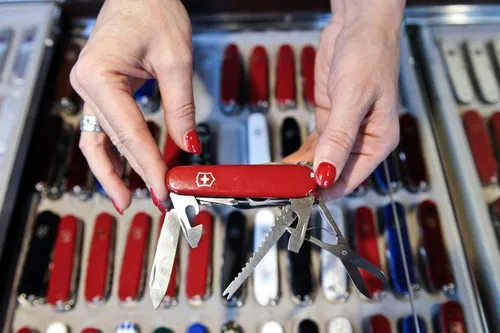Victorinox, renowned for its iconic Swiss Army Knife, is pioneering a new iteration of its multitool, sans blade, in response to escalating regulatory constraints impeding access to knives in such tools.
Carl Elsener, the CEO of Victorinox, discussed the initiative in an interview with Swiss media outlet Blick, expressing concern over the growing regulation of knives amid global violence trends. Elsener elaborated on the endeavor, stating, “We’re actively developing pocket tools without blades. For instance, I envision a nifty tool tailored for cyclists.”
“We already offer specialized tools for golfers in our lineup. Cyclists may require unique tools, but not necessarily a blade. The presence of a blade can sometimes evoke a weapon perception in certain markets,” he remarked. These upcoming tool variants are anticipated to complement rather than supplant the traditional Swiss Army Knife.
Elsener highlighted the imposition of restrictions on carrying pocket knives or blades in various countries, particularly for non-work or non-outdoor activities. “In places like England or certain parts of Asia, carrying a knife is often permissible only for occupational or outdoor purposes,” he elucidated. “In urban settings, such as schools, cinemas, or shopping centers, regulations on carrying pocket knives are significantly stringent.”
Elsener noted that the aftermath of the September 11, 2001, attacks in the U.S. led to a surge in knife restrictions, precipitating a notable decline of over 30% in pocketknife sales for the company.
“9/11 starkly reminded us of the importance of diversification and not relying solely on a single business domain,” he emphasized.
Victorinox, founded in 1884 by Karl Elsener, introduced the original Swiss Army Knife in 1897. The company acquired Wenger, a competitor renowned for its Swiss Army Knife, in 2005, and continues to operate the brand, with an increased emphasis on watches and travel gear.















































